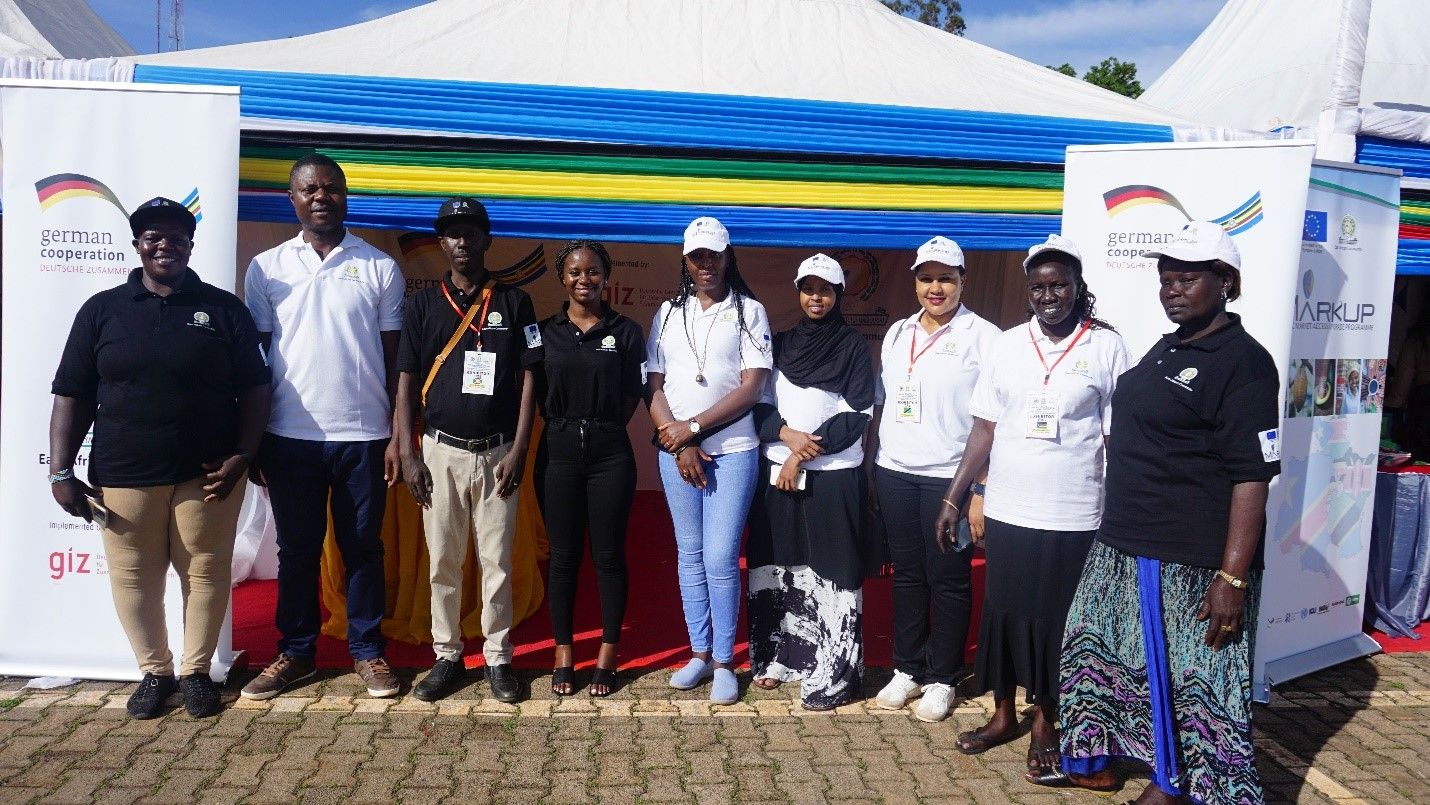The 22nd edition of the annual EAC Jua Kali/Nguvu Kazi Exhibition, was held from 8 to 18 December at the Kololo Independence Grounds in Kampala, Uganda under the theme “Buy East African to Build East Africa for Resilience and Sustainable Development”.
The main objective of the trade fair was to contribute towards the realization of the region’s development goals and aspirations by lending support to the budding Small and Medium Enterprises (SMEs) sector of the economy. Further, the trade fair created considerable impact on the image of SMEs, which are seen as the panacea to the daunting question of unemployment and poverty alleviation in the region.
The fair attracted more than 1,000 SMEs from all the seven EAC Partner States. GIZ via the “Support to East African Integration” programme, dubbed SEAMPEC II, showcased its activities in Kampala and supported SMEs in fruits and vegetables, leather and leather products to showcase their products, network, build their capacity and sell their products.
In addition, a GIZ-specific session on the opportunities for SMEs presented by the African Continental Free Trade Area (AfCFTA) was organized. Mr. Lamech Wesonga, Economic Policy Advisor GIZ, informed over 1,000 attendees that AfCFTA will boost intra-African trade through consumption of locally produced goods and create opportunities for a digital trade through the promotion of e-commerce. It would therefore be vital to support the engagement of SMEs in AfCFTA processes, which is done by SEAMPEC II, e.g., via awareness creation and capacity development measures.
Mr. Wesonga emphasized that for AfCFTA to work successfully and for SMEs to maximize benefits in trading under the AfCFTA, the following should be addressed:
- Support integration of SMEs into regional value chains through production linkages and awareness creation.
- Partner States to create enabling environment to increase production capacities of SMEs inclusivity.
- Partner States should facilitate inclusiveness (youth, persons with disabilities) in exploiting existing and potential opportunities.
- Partner States to explore technical assistance to enhance skills gaps for implementing AfCFTA effectively.
- Partner States to strengthen regional value chains to attract local and foreign investors in existing and new sectors and form linkages between dominant agricultural sector and other sectors.
- Partner States to promote access to affordable credit for SMEs.
- Partner States to provide efficient transport system by enhancing efficiency and coordination.
- Partner States to provide reliable and affordable energy which is necessary for production.
- Partner states to ensure continuous technological innovation and an increased access to technology.
- Need to enhance collaboration with private sector, civil society, and other actors to create awareness on the opportunities of AfCFTA.
Similarly, SMEs participating in the exhibition highlighted some of the challenges they are facing in conducting cross-border trade. Therefore, in addition to other policy interventions, SMEs recommended to the EAC Partner States the following to improve their participation in regional and continental trade:
- Have different tiers at the bureau of standards which could support the different categories of private sector including SMEs in securing standards easily and quickly as the current system only meet the demands and capacity of big companies.
- Partner States to provide financial support to SMEs in securing standards and marketing their products across the region, continent and internationally especially through B2Bs.
- Partner States to reduce the timeline for processing the standards to facilitate more application for standards.
- Partner States to provide business support such as mentorship, coaching and networking/linkages to grow SMEs capacity.
Find more information on SEAMPEC II programme here.
